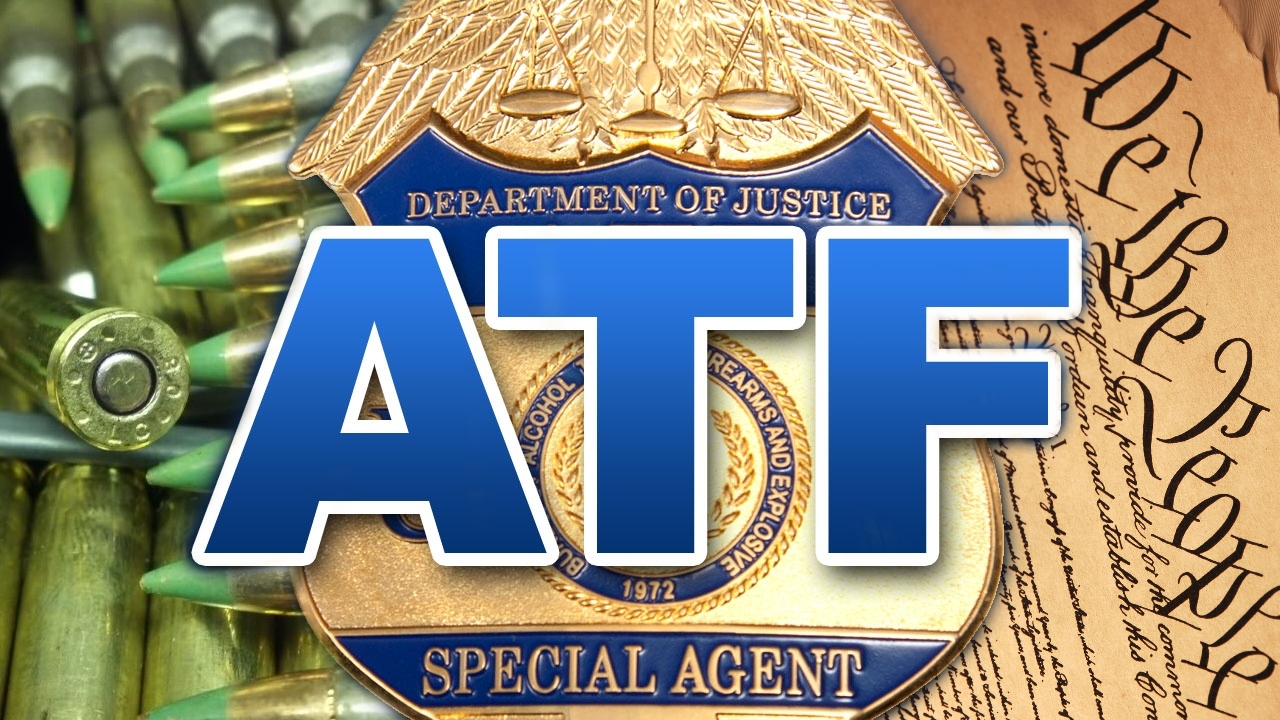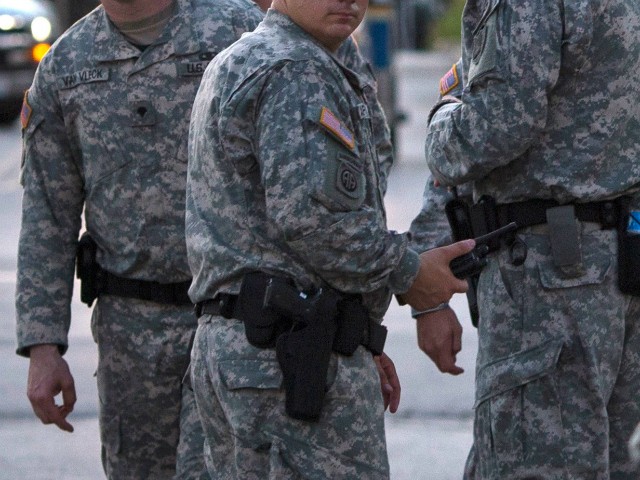Eighth Circuit Court of Appeals in North Dakota rules against ATF’s pistol brace ban
08/16/2024 / By Laura Harris

The Eighth Circuit Court of Appeals in North Dakota has ruled that restricting the ownership of pistol attachments known as stabilizing braces is “arbitrary and capricious.”
In January 2023, the Bureau of Alcohol, Tobacco, Firearms and Explosives (ATF) classified guns equipped with braces designed for shoulder shooting as short-barrel rifles, which put them in a category of firearms requiring special registration, longer waiting periods for purchase and higher taxes compared to other small firearms.
The ATF implemented such a rule due to reports of users repurposing the brace to rest against their shoulders, similar to a rifle stock. But then, the ATF also clarified that this rule does not apply to braces “objectively designed and intended … for use by individuals with disabilities.” (Related: 2A VICTORY: Texas federal judge halts ATF from enforcing pistol brace ban.)
However, several states and other plaintiffs, including a coalition of 25 Republican attorneys general (AGs), sued the ATF in February 2023.
United States Senior District Judge Daniel Hovland of the District Court for the District of North Dakota declined to grant a preliminary injunction to block the rule. At that time, Hovland argued that the plaintiffs were unlikely to succeed on the merits and that the ATF had adequately explained its rulemaking process.
However, on Aug. 9, the court decided two in favor and one against that the coalition would likely succeed in its legal challenge against the ATF rule and allowed the case to proceed.
“The Final Rule, as a whole, is arbitrary and capricious because it allows the ATF to arrive at whatever conclusion it wishes without ‘adequately explain[ing] the standard on which its decision is based,'” stated the majority opinion. “Thus, we conclude the Coalition is likely to succeed on the merits of its challenge.”
In line with this, the Eighth Circuit’s majority opinion directed Hovland to reconsider the plaintiffs’ motion for an injunction.
“We reverse the order denying a preliminary injunction and remand with instructions to reconsider the motion consistent with this opinion,” the judges wrote.
Court of Appeals Judge Bobby Shepherd argued that the panel should have upheld Hovland’s order. Shepherd pointed out that a preliminary injunction was unnecessary after District Judge Reed O’Connor in Texas vacated the rule in June. O’Connor had ruled that the ATF’s regulation violated the Administrative Procedures Act’s procedural requirements. He even argued that it was not a “logical outgrowth” of the proposed version of the rule.
“The Court finds that the adaptation of the Final Rule was arbitrary and capricious for two reasons,” O’Connor wrote in June. “First, the Defendants did not provide a detailed justification for their reversal of the agency’s longstanding position. And second, the Final Rule’s standards are impermissibly vague.”
This case will return to the lower court for further consideration, but the enforcement of the ATF’s stabilizing brace rule remains in limbo.
Republican AGs lauded the court’s decision
Over a decade ago, the pistol stabilizing brace was initially introduced to help persons with disabilities and others who require assistance when shooting large-format pistols.
However, in 2020, the ATF proposed a restriction on pistol-stabilizing braces. The Department of Justice submitted the final rule to the Federal Registrar in January 2023 after a man killed 10 people at a grocery store in Colorado using a gun with a stabilizing brace. Effective immediately upon publication, the rule required firearms with stabilizing braces to be registered within 120 days, modified to remove the brace, turned into a local ATF office, or destroyed.
Order violations can result in severe penalties, including fines up to $10,000, 10 years in prison and a felony conviction that disqualifies individuals from future firearm ownership.
The rule has faced significant pushback from Republicans and gun owners’ rights groups, including the National Rifle Association, which highlighted that stabilizing braces were originally designed to aid disabled veterans.
Iowa Attorney General Brenna Bird and Missouri Attorney General Andrew Bailey, two of the 25 AGs challenging the ATF rule, lauded the recent court decision.
“This victory upholds Americans’ constitutional rights and stops the Biden-Harris ATF’s illegal attempt to make millions of law-abiding citizens felons overnight,” Bird stated. “The Constitution was meant to be a floor, not a ceiling, for our God-given rights. We will continue to do everything in our power to safeguard Missourians’ right to keep and bear arms against encroachment by unelected federal bureaucrats.”
Check out SecondAmendment.news for similar stories regarding gun control and the Second Amendment.
Watch this video about the controversy that followed an appeal court’s upholding of the assault gun ban in Illinois.
This video is from the EARTH SHAKING NEWS channel on Brighteon.com.
More related stories:
Sources include:
Submit a correction >>
Tagged Under:
atf, big government, Bureau of Alcohol, firearms, Firearms and Explosives, freedom, gun control, gun owners, gun rights, guns, handguns, Liberty, North Dakota, pistol braces, pistols, progress, Resist, Second Amendment, stabilizing braces, Tobacco, Tyranny
This article may contain statements that reflect the opinion of the author
RECENT NEWS & ARTICLES
COPYRIGHT © 2017 LIBERTY NEWS





















